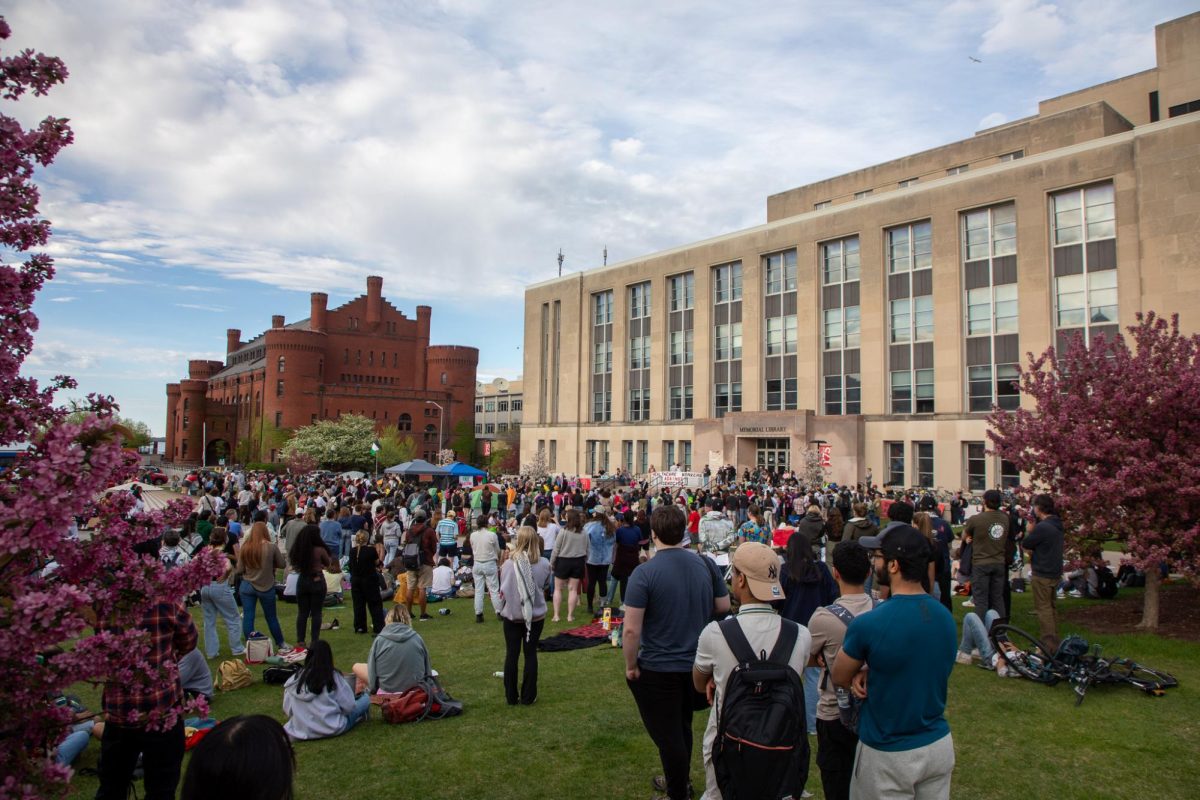There is perhaps no better example of the process-focused mentality, in which results are sacrificed for efficiency and functionality, than Associated Students of Madison’s Constitutional Committee.
In case you aren’t aware, the UW “student government” is currently nearing the end of its long, if little noticed, revision of the ASM constitution. Pressured from all sides since last semester to clean up its act, the new constitution is supposed to be the product of ASM’s efforts toward “reform.” After receiving some student input throughout the semester, the constitutional changes are now to be confirmed by the Student Council and then likely a referendum next spring.
The neglected question in the “reform” movement is, appropriately enough, the one that should be the most obvious: Just what is it that is so wrong with ASM? To the Constitutional Committee — comprised of ASM veterans who have little objective knowledge of what regular students would like to see from student government — the problems are ostensibly superficial. To them, low voter turnout, student ignorance and lack of efficiency and accountability from the Student Council — the real focus of the criticism — are what plague the organization.
You will notice that none of these are substantive critiques of ASM’s legislative role and purpose — namely, there is no acknowledgement that the Student Council has never done much of anything. According to the Committee, as long as the Student Council doesn’t do anything efficiently, operating like a well-oiled machine that produces no product, the “reform” efforts can be counted as a success.
It’s no surprise, then, that the constitutional changes focus on the ASM structure, instead of its content. Reading over the new document, the obvious and absurd intention is to model ASM after the U.S. constitution. Unambiguously, the dominant change comes through the addition of a president, presumably to put a face on the organization and improve its functionality.
But due to its monumental power, the new executive position could end up disastrous for student interests. The president is responsible for enacting legislation and approving bylaws. A presidential veto would require, respectively, a two-thirds and three-fourths override from the Student Council (to be renamed Senate). Accounting for the predictable absences, this means that the president, with the aid of 7-10 of the 33 senators, could effectively control the entire operations of ASM. He or she could even disregard bylaws and constitutional clauses with the aid of one-fourth of attending senators — it takes three-fourths of the body to impeach the executive.
The president is also responsible for appointing the members of the Cabinet, Finance Committee, Student Judiciary and the chair and vice-chair of the Student Elections Commission.
Even more dangerous is the Executive Order power, which would give the president dictatorial powers over ASM until the Senate revokes it (the body meets biweekly). According to Jeff Wright, Constitutional Committee chair, this power is necessary to “respond to issues and events that cannot wait for the Senate to reconvene.” But where is the check to ensure this won’t be abused?
The president’s power even sneaks into those parts of ASM that do have a real impact on campus life, like the SSFC (to be renamed the Appropriations Committee) — the president has the power to veto all budgets, requiring a three-fourths override from the Senate.
And speaking from experience, those in ASM leadership — admittedly all elected positions currently — rarely develop the combative role when dealing with the administration and state government needed to advance student interests. In absence of any pressure from below, such positions are invariably co-opted, the university’s patronizing behavior accepted and even profited from — through letters of recommendation and the like. It’s not hard to imagine the executive position — a single person up to his or her neck with power and attention — ending up in the back pocket of Dean Lori Berquam.
Ultimately, the end result of the constitutional changes doesn’t address the real problem with ASM’s advocacy wing, and potentially strips students of whatever leverage they do have with the administration. All in all, it’s a bad deal.
If progress is to be made in improving ASM’s legislative (or proactive) side, those intent on change have to first acknowledge that Student Council can claim to have accomplished little because it has little power. The ASM student Senate cannot behave like the U.S. Senate because the former has no equivalent jurisdiction.
For this reason, student demands and changes like increased diversity and responsible labor practices have historically not come from ASM, but through grassroots campus organizations like the Multicultural Student Coalition and the Student-Labor Action Coalition. If the Student Council (or Senate) is to have a real impact on campus life, it must do more than make posturing attempts at “governance.” It must foster and channel student concerns — whatever they may be — into effective activism that can translate into real change.
For those who feel the same, I encourage you to voice your concerns at the Open Forum for the Student Council meeting tomorrow, 6:30 TITU.
Kyle Szarzynski ([email protected]) is a senior majoring in Spanish and history.













